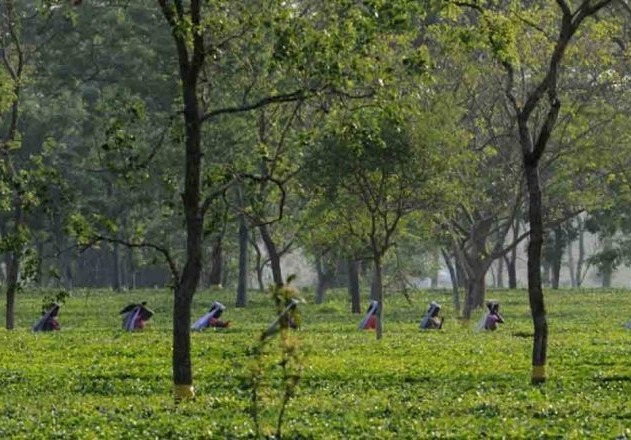Meerut (UP) (PTI): Four students have been detained after being booked for allegedly harassing a female teacher at a school here, officials said on Monday.
The action was taken after two videos of the students passing lewd comments at the teacher went viral on social media platforms.
According to police, the students, including a girl, study at a school in Radhna Inayatpur village under Kithaur police station area.
In a written complaint filed on Sunday, the 27-year-old teacher alleged that some students of class 12 were harassing her for a long time, police sources said.
"It is alleged that the students were making objectionable statements against the teacher. She confronted them on several occasions but to no avail," Station House Officer (SHO) of Kithaur police station Arvind Mohan Sharma said.
The teacher alleged that the "limit was crossed on June 24 when the students said 'I love you' to me inside the school premises and recorded a video of it. They then circulated the clip on social media."
"Apart from this, a video of them using profanities against me inside the classroom was also made viral on social media," she said in the complaint.
Sharma said a case has been registered against the students, who are aged around 16.
Meerut police had on Sunday tweeted that the four students were taken into custody and presented before the Juvenile Justice Board.
Let the Truth be known. If you read VB and like VB, please be a VB Supporter and Help us deliver the Truth to one and all.
New Delhi (PTI): More than 50 lakh large farmland trees vanished between 2018 and 2022 in India, partly due to altered cultivation practices, revealing a "concerning trajectory," new research published in the journal Nature Sustainability has found.
Researchers said that "an observable trend was emerging" wherein agroforestry systems are being replaced with paddy rice fields, even as a certain loss rate could be found to be natural.
Large and mature trees within these agroforestry fields are removed, and trees are now being cultivated within separate block plantations typically with lower ecological value, they said.
Block plantations, usually involving fewer species of trees, were found to have increased in numbers which some villagers from Telangana, Haryana, Maharashtra and other states confirmed via interviews.
The team, including researchers from the University of Copenhagen, Denmark, explained that the decision to remove trees is often driven by perceived low benefits of the trees, coupled with concerns that their shading effect, including that of Neem trees, may adversely affect crop yields.
Boosting crop yields also contributed to the expansion of paddy rice fields, further facilitated by water supply which was augmented by the establishment of new boreholes, the authors said.
"This finding is particularly unsettling given the current emphasis on agroforestry as an essential natural climate solution, playing a crucial role in both climate change adaptation and mitigation strategies, as well as for livelihoods and biodiversity," the authors wrote.
Agroforestry trees are a vital part of India's landscapes as they generate socio-ecological benefits, along with being a natural climate solution owing to their ability to absorb carbon dioxide from the air.
However, despite their importance, the lack of robust monitoring mechanisms has contributed to an insufficient grasp of their distribution in relation to management practices, as well as their vulnerability to climate change and diseases, the researchers said.
For the study, the team used AI-based deep learning models for detecting individual non-forest trees for each year. By tracking the tree crown over the years, they then analysed the changes. Crowns of multiple trees together form a canopy.
The researchers mapped about 60 crore farmland trees, excluding block plantations, and tracked them over the past decade.
They found that around 11 percent of the large trees, each having a crown size of 96 square metres and mapped in 2010/2011, had disappeared by 2018.
"Moreover, during the period 2018–2022, more than 5 million large farmland trees (about 67 square metres crown size) have vanished, due partly to altered cultivation practices, where trees within fields are perceived as detrimental to crop yields," the authors wrote.
The researchers clarified that while the findings may appear to contradict official reports and studies showing that tree cover has increased in recent years, they reported only gross losses and did not look at tree gains as a separate class.





